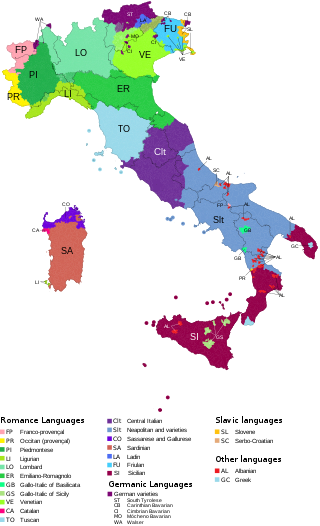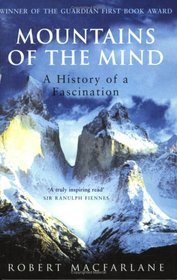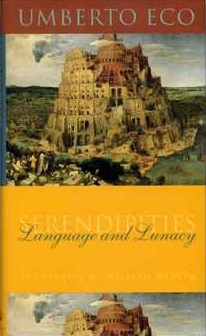
Sardinian or Sard is a Romance language spoken by the Sardinians on the Western Mediterranean island of Sardinia.

Umberto Eco was an Italian medievalist, philosopher, semiotician, novelist, cultural critic, and political and social commentator. In English, he is best known for his popular 1980 novel The Name of the Rose, a historical mystery combining semiotics in fiction with biblical analysis, medieval studies and literary theory, as well as Foucault's Pendulum, his 1988 novel which touches on similar themes.

Chocolat is a 1999 novel by Joanne Harris. It tells the story of Vianne Rocher, a young single mother, who arrives in the French village of Lansquenet-sous-Tannes at the beginning of Lent with her six-year-old daughter, Anouk. Vianne has arrived to open a chocolaterie—La Céleste Praline—which is on the square opposite the church. During the traditional season of fasting and self-denial she gently changes the lives of the villagers who visit her with a combination of sympathy, subversion and a little magic.

An Essay Towards a Real Character, and a Philosophical Language is the best-remembered of the numerous works of John Wilkins, in which he expounds a new universal language, meant primarily to facilitate international communication among scholars, but envisioned for use by diplomats, travelers, and merchants as well. Unlike many universal language schemes of the period, it was meant merely as an auxiliary to—not a replacement of—existing natural languages.
Vernacular is the ordinary, informal, spoken form of language, particularly when perceived as being of lower social status in contrast to standard language, which is more codified, institutional, literary, or formal. More narrowly, a particular variety of a language that does not hold a widespread high-status perception, and sometimes even carries social stigma, is also called a vernacular, vernacular dialect, nonstandard dialect, etc. and is typically its speakers' native variety. Despite any such stigma, modern linguistics regards all nonstandard dialects as full-fledged varieties of a language with their own consistent grammatical structure, sound system, body of vocabulary, etc.

Paul Jules Antoine Meillet was one of the most important French linguists of the early 20th century. He began his studies at the Sorbonne University, where he was influenced by Michel Bréal, Ferdinand de Saussure, and the members of the L'Année sociologique. In 1890, he was part of a research trip to the Caucasus, where he studied the Armenian language. After his return, de Saussure had gone back to Geneva so he continued the series of lectures on comparative linguistics that the Swiss linguist had given.
Mario Alinei was an Italian linguist and professor emeritus at the University of Utrecht, where he taught from 1959 to 1987. He was founder and editor of Quaderni di semantica, a journal of theoretical and applied semantics. Until 1997, he was president of Atlas Linguarum Europae at UNESCO.

The languages of Italy include Italian, which serves as the country's national language, in its standard and regional forms, as well as numerous local and regional languages, most of which, like Italian, belong to the broader Romance group. The majority of languages often labeled as regional are distributed in a continuum across the regions' administrative boundaries, with speakers from one locale within a single region being typically aware of the features distinguishing their own variety from one of the other places nearby.

Auraicept na nÉces is an Old Irish text on language and grammar. The core of the text may date to the early eighth century, but much material was added between that date and the production of the earliest surviving copies from the end of the fourteenth century. The text is the first instance of a defence of a western European vernacular, defending the spoken Irish language over Latin, predating Dante's De vulgari eloquentia by several hundred years.
William Fense Weaver was an English language translator of modern Italian literature.
Horapollo is the supposed author of a treatise, titled Hieroglyphica, on Egyptian hieroglyphs, extant in a Greek translation by one Philippus, also dating to c. 5th century.

Antônio Houaiss was a Brazilian lexicographer, diplomat, writer and translator.

La ricerca della lingua perfetta nella cultura europea (The Search for the Perfect Language (the Making of Europe); trans. James Fentress) is a 1993 book by Umberto Eco about attempts to devise an ideal language. The writing is essayistic and uses the myth of Babel as a paradigm for connecting linguistic and social practices. Emphasizing that the quest for a perfect language has never been devoid of ideological motivation, Eco outlines some objections to the idea and suggests that an International Auxiliary Language, such as Esperanto, is a more realistic project. He points out that the impossible quest has had some useful side effects (taxonomy, scientific notations etc.) but dwells mostly on exotic proposals. Lengthy passages are devoted to Dante, Lull, Kircher, various 17th-century authors and a few less well-known names from later times. The contemporary project for a politically and culturally unified Europe provides the perspective for a more serious consideration of the theme.
Traditionalist conservatism, often known as classical conservatism, is a political and social philosophy that emphasizes the importance of transcendent moral principles, manifested through certain posited natural laws to which it is claimed society should adhere. It is one of many different forms of conservatism. Traditionalist conservatism, as known today, is rooted in Edmund Burke's political philosophy, which represented a combination of Whiggism and Jacobitism, as well as the similar views of Joseph de Maistre, who attributed the rationalist rejection of Christianity during previous decades of being directly responsible for the Reign of Terror which followed the French Revolution. Traditionalists value social ties and the preservation of ancestral institutions above what they perceive as excessive rationalism and individualism. One of the first uses of the phrase "conservatism" began around 1818 with a monarchist newspaper named "Le Conservateur", written by Francois Rene de Chateaubriand with the help of Louis de Bonald.
English as a lingua franca (ELF) is the use of the English language "as a global means of inter-community communication" and can be understood as "any use of English among speakers of different first languages for whom English is the communicative medium of choice and often the only option". ELF is "defined functionally by its use in intercultural communication rather than formally by its reference to native-speaker norms" whereas English as a second or foreign language aims at meeting native speaker norms and gives prominence to native-speaker cultural aspects. While lingua francas have been used for centuries, what makes ELF a novel phenomenon is the extent to which it is used in spoken, written and computer-mediated communication. ELF research focuses on the pragmatics of variation which is manifest in the variable use of the resources of English for a wide range of globalized purposes, in important formal encounters such as business transactions, international diplomacy and conflict resolution, as well as in informal exchanges between international friends.
Mark Hale is an American linguistics professor now teaching at Concordia University in Montreal, Quebec, Canada. He studies the methodology of historical linguistics as well as theoretical linguistics, Indo-European and Austronesian linguistics.
This is a list of works published by Umberto Eco.
Bruno Osimo is an Italian fiction writer, translator, and translation studies scholar.

The Impressionist is Hari Kunzru's debut novel, first published in 2003. Kunzru received the Betty Trask Award and the Somerset Maugham Award for the book's publication.

Mountains of the Mind: A History of a Fascination is a book by British writer Robert Macfarlane published in 2003 about the history of human fascination with mountains. The book takes its title from a line by the poet Gerard Manley Hopkins and combines history with first-person narrative. He considers why people are drawn to mountains despite their obvious dangers, and examines the powerful, and sometimes fatal, hold that mountains can come to have over the imagination. The book's heroes include the mountaineer George Mallory, and its influences include the writing of Simon Schama and Francis Spufford. In the end, Macfarlane criticizes Mallory for devoting more time to the mountain than his wife and notes that he has personally sworn off high-risk mountaineering. The New York Times's John Rothchild praised the book, writing "There's fascinating stuff here, and a clever premise, but Mountains of the Mind may cause recovering climbaholics to trace their addiction to their early homework assignments and file class-action lawsuits against their poetry teachers."











